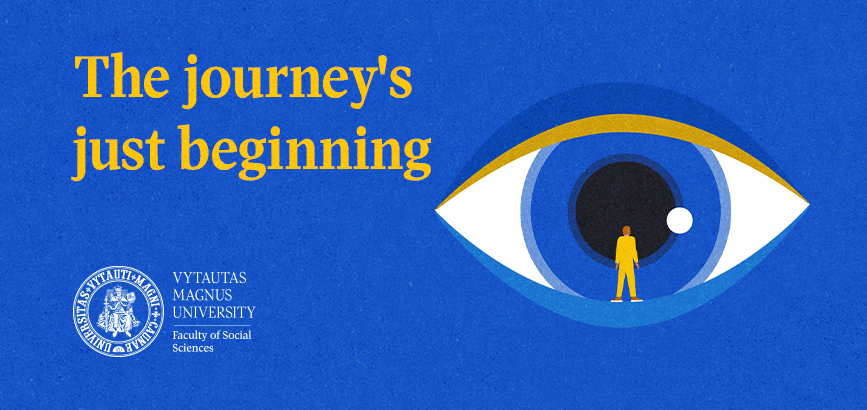Seminar “Research for Whom? How to Do Research that Matters
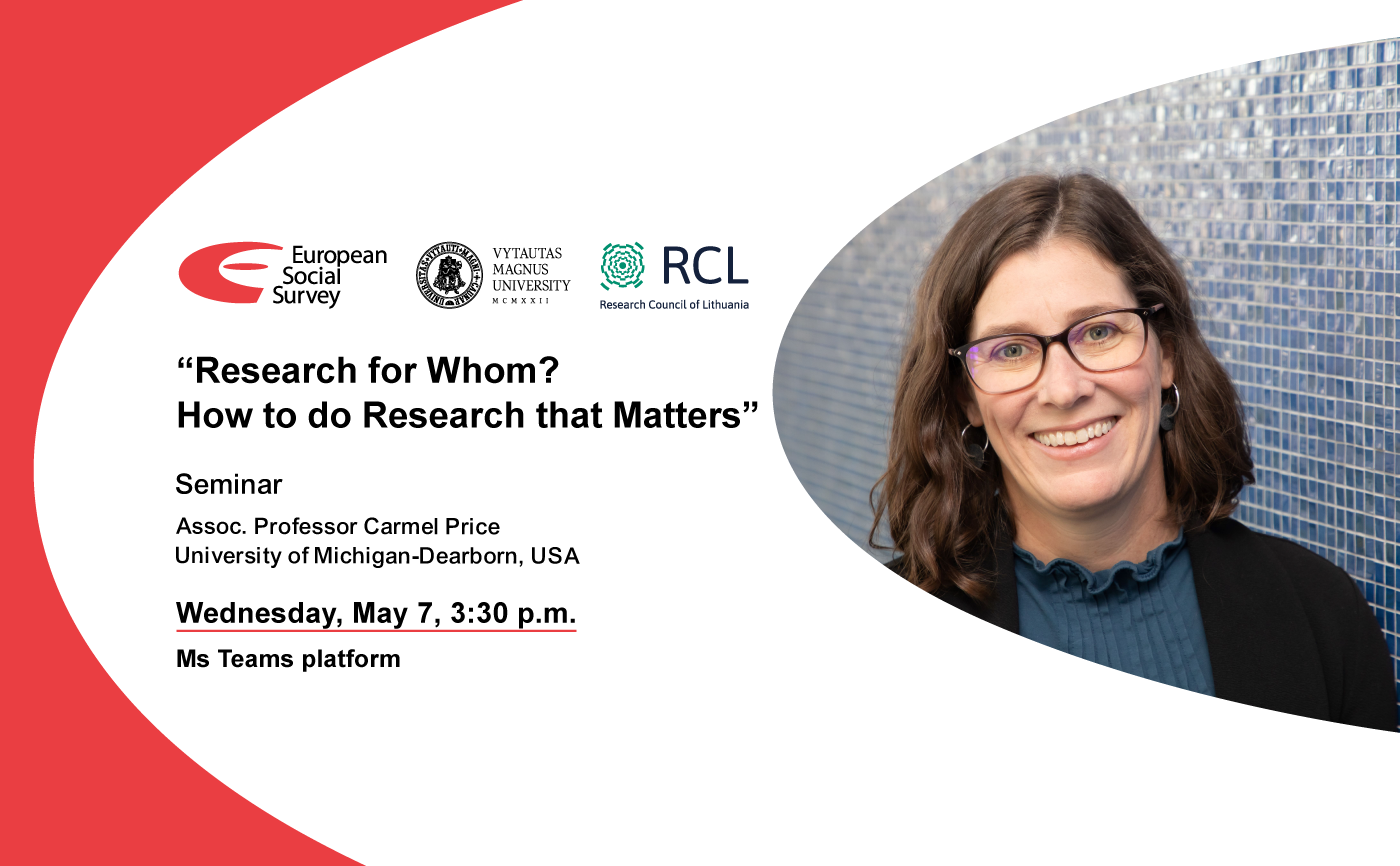
The European Social Survey team at VMU invites researchers, students, and community members to the seminar “Research for Whom? How to Do Research that Matters”, led by Assoc. Professor Carmel Price (University of Michigan – Dearborn, USA).
Date: May 7, 2025
Time: 3:30 PM (Vilnius time)
Language: English
Format: online seminar via MS Teams platform
Please register for the seminar here.
Registered participants will receive the MS Teams link to the seminar one day before the workshop.
Often, the audience for academic research is the scientific community. Technical manuscripts filled with jargon are published behind firewalls where information is not accessible and not digestible to the general public. But what if more academics worked in partnership with community members to create research that was meaningful and useful to the everyday lives of citizens? Dr. Price has over a decade of experience as a public sociologist. In this talk, she will describe the best practices (and not so good practices) for doing community-based participatory research.
Carmel E. Price
Short bio:
Carmel Price is an Associate Professor of Sociology at the University of Michigan – Dearborn. She became an academic through an unconventional path, first working as an elementary school teacher and then as a social worker. Her diverse training and careers outside of academia have helped her to develop an expertise in community-based participatory research. Thematically, her research falls into two categories: (1) environmental health and justice and (2) education and social mobility. Themes of inequality related to socio-economic class, gender, and race/ethnicity are laced throughout her work. Dr. Price currently serves as the Provost Faculty Fellow for the University of Michigan – Dearborn and she is serving a three-year term as an elected council member of the Public Sociology section of the American Sociological Association. She has over two-dozen academic publications, which often include community partners and undergraduate students as co-authors.
For more information about the seminar, please send an email to est@vdu.lt.
Seminar “Qualitative Research Methods and Their Application in the Studies of Socially Excluded Groups”
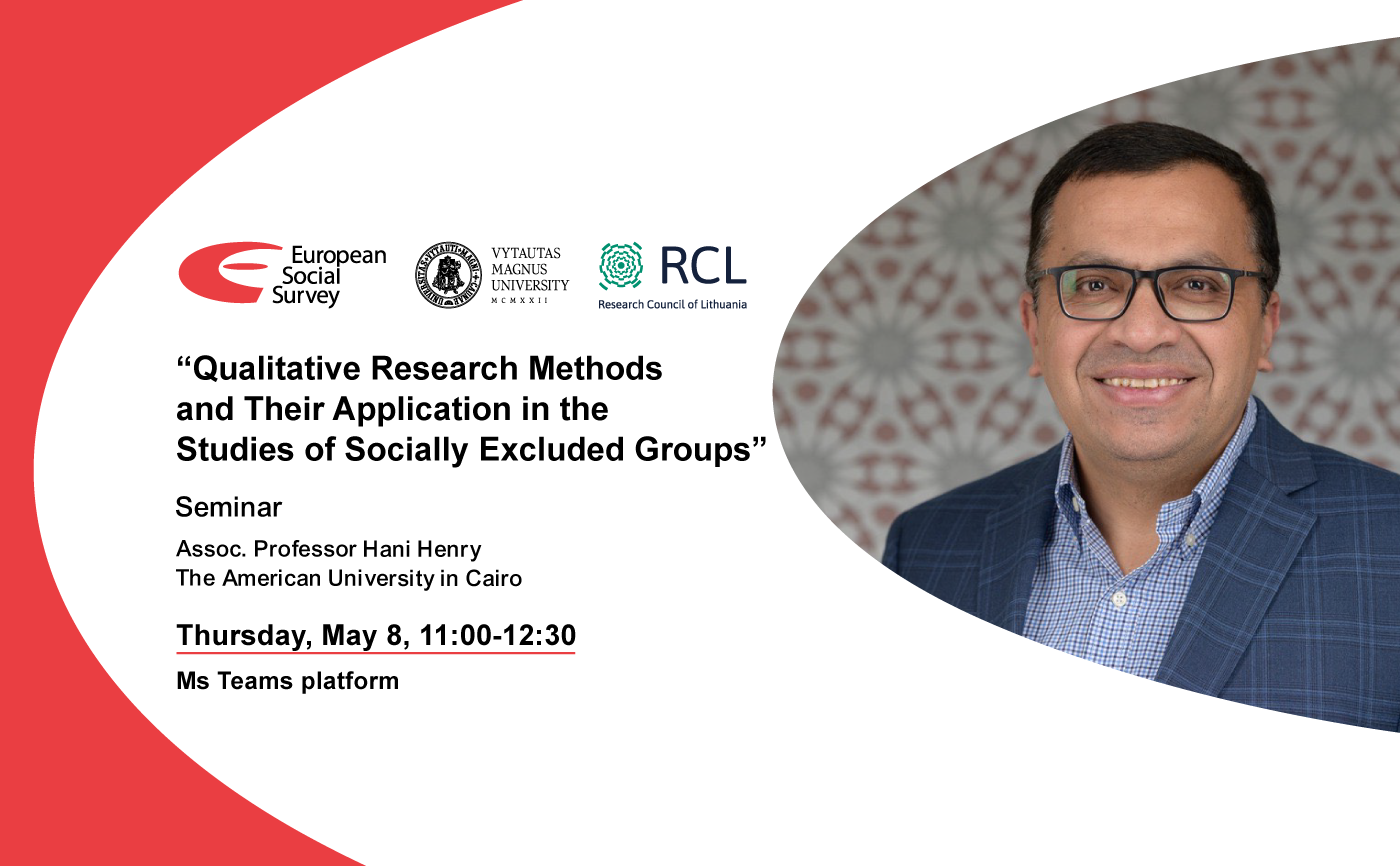
The European Social Survey team at VMU invites researchers, students, and community members to the seminar “Qualitative Research Methods and Their Application in the Studies of Socially Excluded Groups”, led by Assoc. Professor Hani Henry (The American University in Cairo).
Date: May 8, 2025
Time: 11:00-12:30 (Vilnius time)
Language: English
Format: online seminar via MS Teams platform
Please register for the seminar here.
Registered participants will receive the MS Teams link to the seminar one day before the seminar.
This seminar introduces key qualitative research methods, including interviews, ethnographic studies, and thematic analysis. Emphasis is placed on exploring the lived experiences of individuals from marginalized groups, with a particular focus on culture and identity as central elements in qualitative inquiry.
For more information about the seminar, please send an email to est@vdu.lt.
VDU Psichologijos klinikos psichologo kabineto Vilniuje atidarymas

Exhibition THE SUN, THE MOON, AND ALL THE STARS
This is one of the first attempts in Lithuania to present and discuss outsider art. The exhibition features drawings, paintings, sculptures, and objects created by eighteen authors. Some of the works can be categorized as outsider art (e.g., Antanas Liutvinas, Ina Sauksciute, Vladas Juodagalvis, and Svajunas). Others are more likely the creations of talented, self-taught individuals who were not influenced by folk art traditions (e.g., Gediminas Borisevicius). Ona Paulauskiene, a folk artist, is also represented in the exhibition. The sculpture displayed here was likely a playful sketch for her, which might explain why she gave it away without hesitation.
We are also showcasing car rim caps painted with heraldic symbols by Rimantas Tevelis. His skill as a painter was so remarkable that, if you didn’t know he was an electrician who painted only on weekends and during vacations, you might mistake him for a professional artist. Irena Miseviciene graduated from art school, but her life and work were transformed by religious enlightenment. Kristina Latakaite began drawing angels after experiencing epileptic seizures at the age of eighteen.
Thus, the exhibition presents a wide range of cases—works that exhibit, to varying degrees, the characteristics of outsider art.
The exhibition is curated and organized by artist Oksana Judakova.
Exhibition opening: April 8, 15:00
International online conference „Solution-Focused Approach for co-constructing different realities“
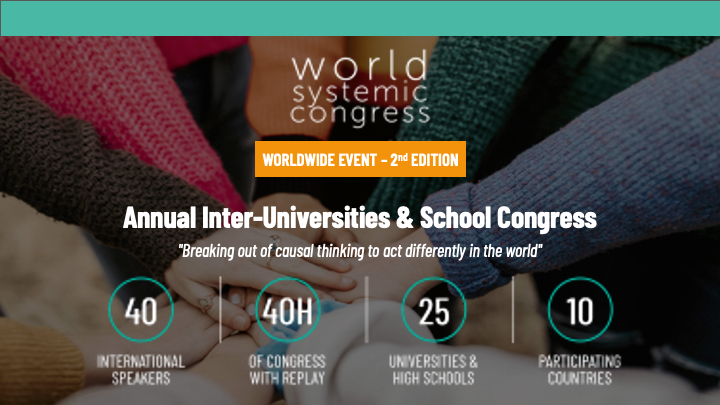
On March 25 & 26, 2025, researchers, academics, philosophers, psychiatrists, sociologists, business leaders, political figures from around the world, meet during an international congress to reflect on a systemic thought with a biopsychosocial vision on social activities Human: mental health, couple, family, education, justice, business, politics, etc. How does the systemic approach make it possible to approach the processes that govern the individual in his relationship to himself, to others and to the world? How does it allow you to get out of a causal way of thinking? How to teach this procedural and complex way of thinking? How to develop the professions of Systemicians, so many new professions of the future, highly qualified and essential to a better relational ecology in society?
On March 26, 12:00-13:30 (LT time), we invite you to participate in the conference and the presentation “Beyond causal thinking with Solution-Focused Approach” by VMU SMF doc. dr. Rytis Pakrosnis.
The conference will bring together international stakeholders from psychology, psychotherapy and anthropology that will share their ideas and their expertise on the application of the approach centered on solutions in the context of work with individuals, couples, couples, couples, couples, couples, couples, couples, couples, couples, couples teams and organizations. Presentations, workshops, examples of cases and discussions will invite participants to explore the approach centered on solutions and highlight the way it can be applied in different contexts to core customers their own way of to be and to act differently in the world.
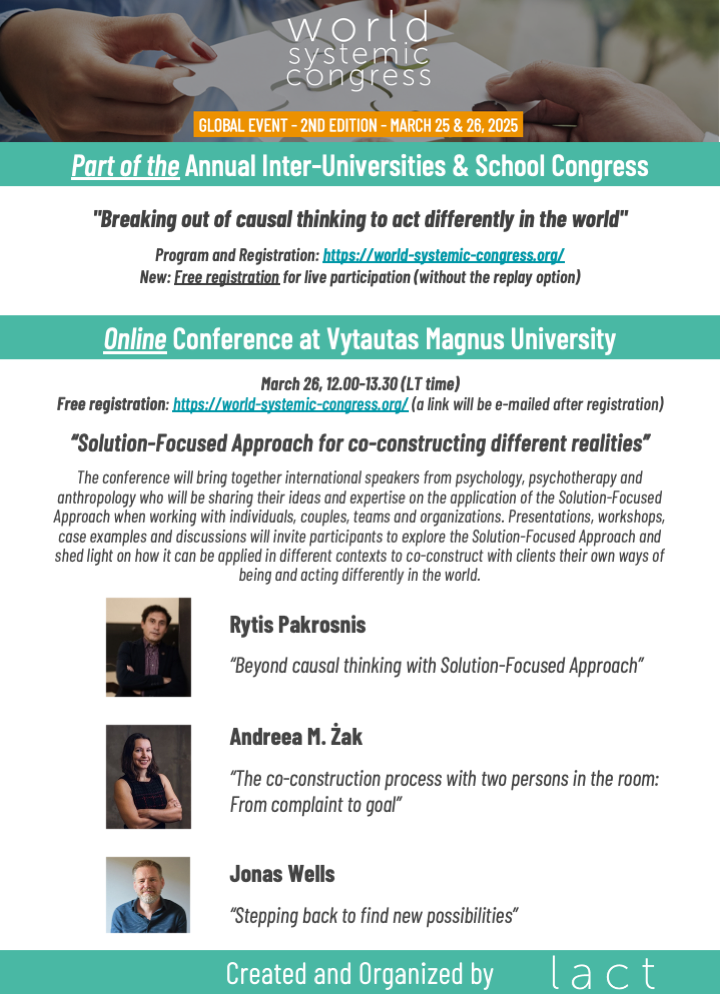
Free registration: https://world-systemic-congress.org/ (link will be sent by email after registration).
Research seminar “Anthropology of Love and Courtship: Theory and Three Modes of Courtship in Euro-American Cultures”
Welcome to the Center for Social Anthropology (VMU) research seminar series of the fall term 2024.
Research seminar “Anthropology of Love and Courtship: Theory and Three Modes of Courtship in Euro-American Cultures”
Presenter: Prof. Dr. Victor de Munck (Vilnius University)
Date: November 8, 3:00 p.m.
Location: Faculty of Social Sciences, Jonavos Street. 66, Room 324
About the lecture: I am using both affordance and cultural model theory to explain three different modes of courtship that we have found to be present cross-culturally.
Affordance theory has found a home in ecological psychology. It is based on the claim that our perceptions of the environment contain salient information that we can read in a variety of ways depending on our particular “effectivities.”
Affordances are what evolutionary psychologists refer to as dispositions except that these dispositions are limited to our reading of the immediate environment. Affordances are mysteriously encoded as ‘fast reflex memory triggers for action.’
The affordance need not be shared but only triggered if the person has the appropriate effectivity to use it to their advantage. Thus, skis are an affordance to someone who skis but not to someone who doesn’t.
Cultural models on the other hand are shared across members of the culture. They work as interpreter guides that help us navigate our way through life.
In this presentation I will show how affordances and cultural models complement each other in the analysis of courtship practices in the Euro–American cultural region where we can safely say that love is the main basis for marriage.
We have found three different modes of courtship. Courtship is conceived as the normative means by which people meet each other, become attracted and go through a normative sequence of events that lead to marriage.
About the author: Victor de Munck is a noted professor of anthropology, known for his work in cognitive and ecological anthropology, he has conducted extensive fieldwork in Sri Lanka, Lithuania, Macedonia, Russia, and the United States.
His research centers on cross-cultural analyses of romantic love, cultural identity, and social norms, often exploring the deep psychological and cultural frameworks that shape human behavior.
De Munck is also recognized for integrating both quantitative and qualitative methods in his studies, aiming to merge scientific rigor with humanistic insights in anthropology. He believes the field lacks a scientific foundation, where systematic methods could verify findings across studies. To him, while interviewing and surveys offer some structure, they fall short of capturing the depth of participant observation—a method requiring immersive, long-term engagement with communities. As De Munck writes: “One becomes a member of the community to be able to perceive and experience the outside world through their cultural lenses.
Few anthropologists do this these days.” Prof. De Munk likens anthropology’s mission to physics, where uncovering “universal laws” might illuminate hidden cultural rules across societies. “Many of these rules are internalized below the surface of consciousness and only recognized when they are violated. we need to voyage to these below conscious mechanisms that make us who we are”, writes De Munk.
Research seminar “(Re-)Claiming the Social Contract: Studying the State and State-Society Relations in the Baltics”
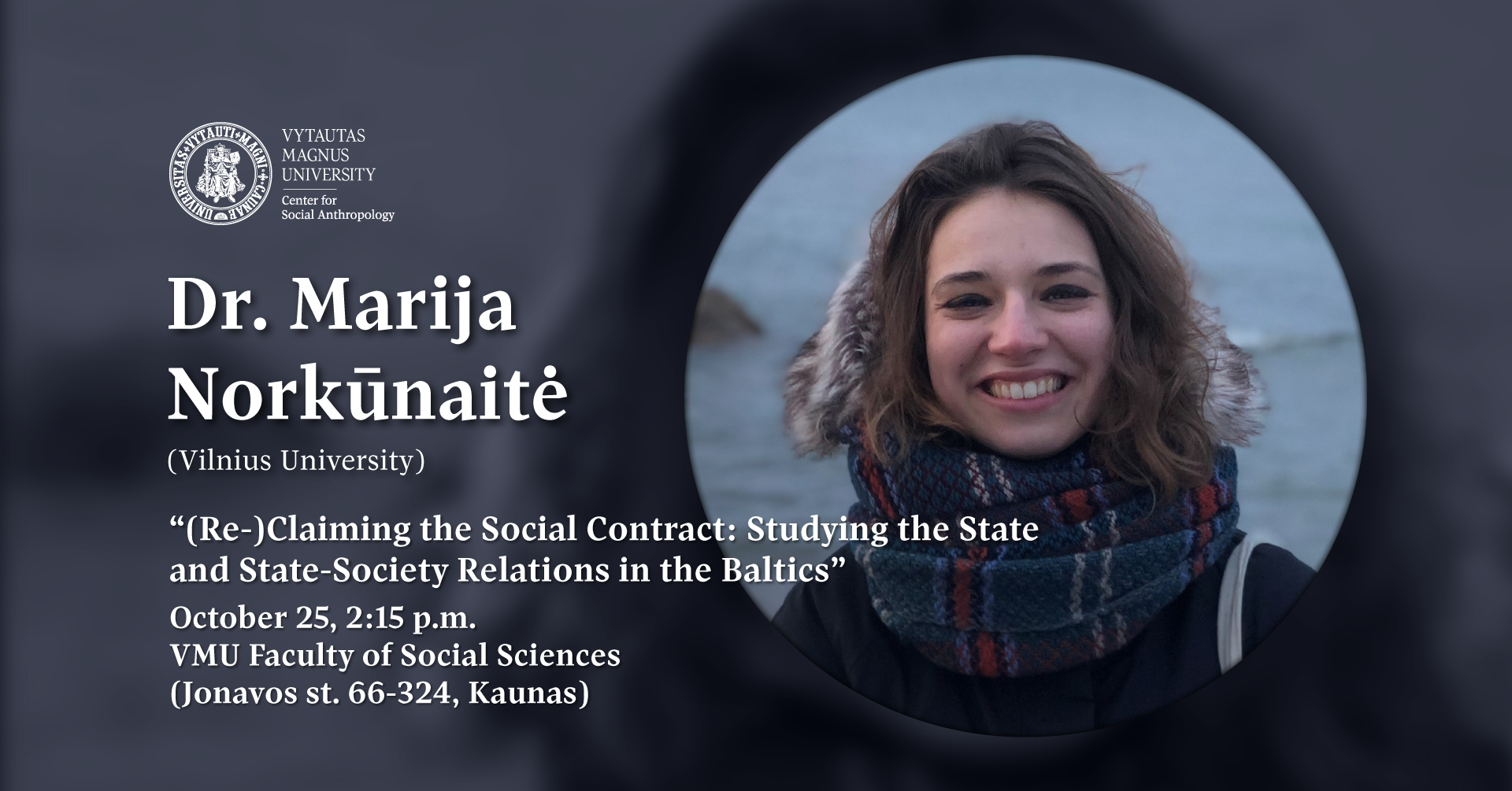
About the lecture: How do people, who feel deprived of recognition to various degrees, claim (full) membership in a political community? This lecture will attempt to answer this question based on ethnographic fieldwork in three former socialist industrial towns in the Baltics: Visaginas in Lithuania, Sillamäe in Estonia, and Daugavpils in Latvia. I will look at how the mainly Russian-speaking residents of these towns entered into a relationship with the Lithuanian, Estonian, or Latvian state. I will demonstrate how they defined “the state”, and their relationship with it, primarily as a social contract, and why. Using ethnographic examples, I will draw attention to how the Russian-speaking (non-)citizens in Visaginas, Sillamäe, and Daugavpils claimed good, deserving, and loyal citizenship, and discuss how successful were their attempts at redefining the membership criteria and thereby the perceived social contract in Lithuania, Latvia, and Estonia.
About the author: Dr Marija Norkūnaitė is a Vilnius University Foundation Fellow at the Vilnius University Institute of International Relations and Political Science. She holds a DPhil (PhD) in Area Studies (Russia and East Europe) from the University of Oxford and works in the field of political and economic anthropology. Her broader research interests include the anthropology of the state, (post-) socialism, and neoliberalism, as well as citizenship, work, and taxation. Marija is a Postdoctoral Affiliate at the School of Anthropology & Museum Ethnography at the University of Oxford. She is also a member of the Anthropology of Tax Network.
Prof. Dr. Mark Doel lecture – Difficult Behaviour in Groups
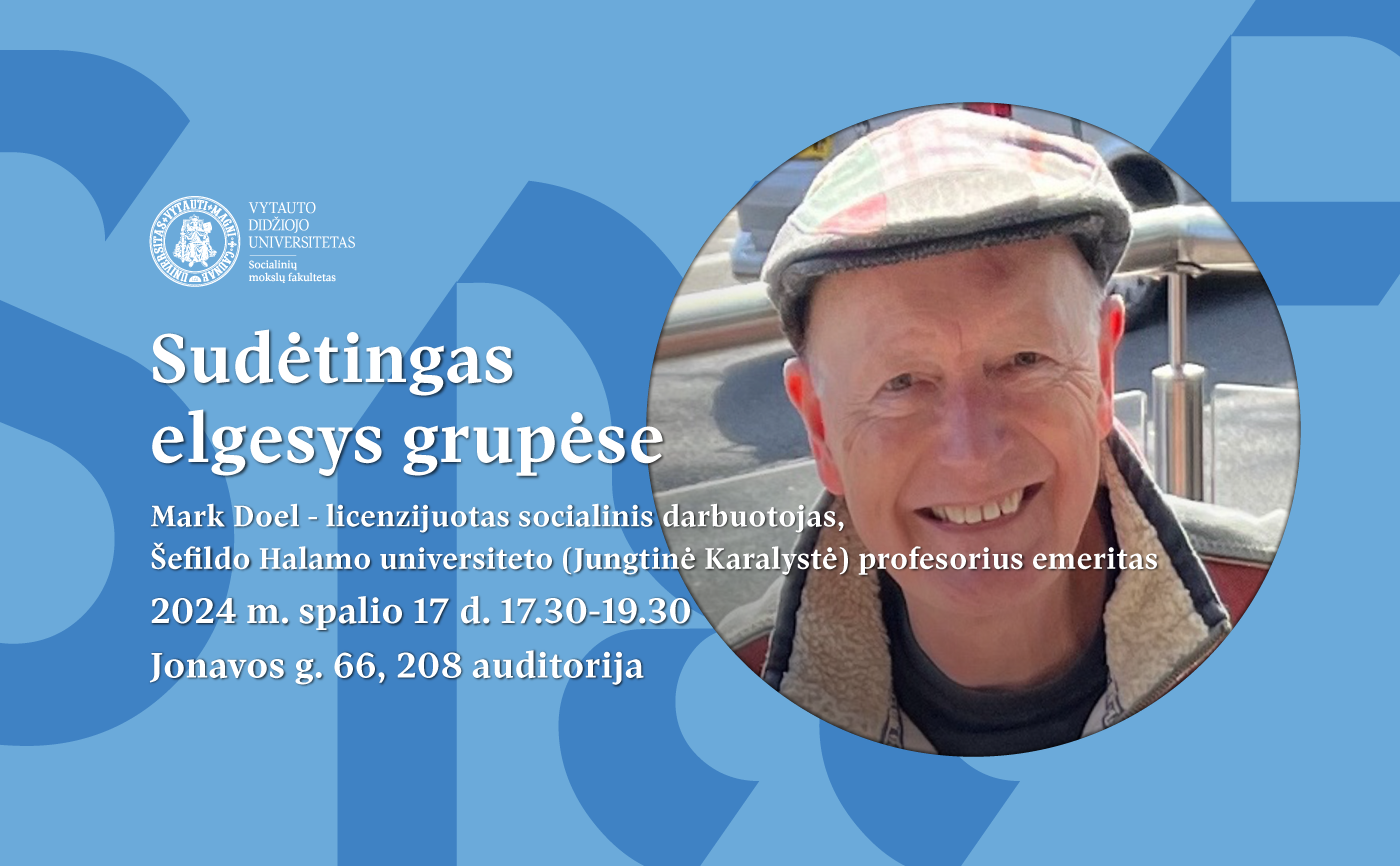
In this session, Mark Doel will explore ‘difficult behaviour’ and help participants to understand it in a broader context. Mark will introduce nine themes arising from his research and practice in this area. He will suggest that the key to understanding and working with these behaviours in groups is the ability of the groupworker to unlock the meaning of the behaviour, and to find a way to give expression to this alongside group members. Groupworkers’ honesty with themselves about the feelings aroused by difficult behaviours is a significant factor.
About Mark Doel
Prof. Dr. Mark Doel, is a registered social worker and Professor Emeritus at Sheffield Hallam University, UK. He has twenty years’ community-based social work practice, specialising in groupwork and task-centred practice. He has experience as a social work teacher and trainer, practice educator, head of school of social work, a writer (22 books, plus many scholarly articles and chapters), journal editor, a researcher, project director and external examiner. He leads workshops in groupwork and practice education. He is researching the use of objects in direct practice, with support from Coram/BAAF and with Universidad de los Lagos, Osorno, Chile: socialworkin40objects.com
Mark has lived and worked in the US, has extensive experience in eastern Europe, including Ukraine, and works alongside community activists in Kolkata, India. He is Honorary Professor at Tbilisi State University, Georgia, where he has longstanding professional friendships. He is a previous Vice-President of International Association for Social Work with Groups (IASWG).
Mark is Chair of the Nether Edge Festival, a community celebration in Sheffield.
https://www.shu.ac.uk/about-us/our-people/staff-profiles/mark-doel
https://www.univ.ox.ac.uk/news/profile-mark-doel/ markdoel@icloud.com
Some writings by Mark Doel that you might be interested in:
Doel, M. (2023) Social Work: The Basics, (2nd edition) London: Routledge.
Doel, M. (2019) ‘Displaying social work through objects’, British Journal of Social
Work, 49(3), April 2019, 824–841 (free download).
Doel, M. (2016) Rights and Wrongs in Social Work: Ethical and practice dilemmas, London: Palgrave.
Doel, M. and Kelly, T. (2014) A-Z Groups and Groupwork, Basingstoke: Palgrave.
Doel, M. and Best, L. (2008) Experiencing Social Work: Learning from service users, London: Sage.
Doel, M. (2006) Using Groupwork, London: Routledge / Community Care.
Doel, M. (2004) ‘Difficult behaviour in groups’, Groupwork, 14.1: 80-100: Whiting and Birch; and reproduced in Social Work with Groups, (US journal) 28.1. pp 3-22.
VMU faculty of Social sciences diploma awarding ceremony
Each summer brings a new phase of joy. New summer, new goals, new dreams, new roads!
June 21 Graduation diplomas of bachelor’s and master’s studies will be presented in the VDU’s Great Hall (28 S. Daukanto St.).
9 A.M. CELEBRATION OF BACHELOR STUDIES OF THE FACULTY OF SOCIAL SCIENCES
10:45 AM CELEBRATION OF THE GRADUATES OF THE MASTER’S STUDIES OF THE FACULTY OF SOCIAL SCIENCES
We inform you that the event may be filmed and/or photographed and you may be seen in the photos or videos of the event, which may be published in various media.
Online training “Promoting inclusion in the organisation: the role of language and communication”
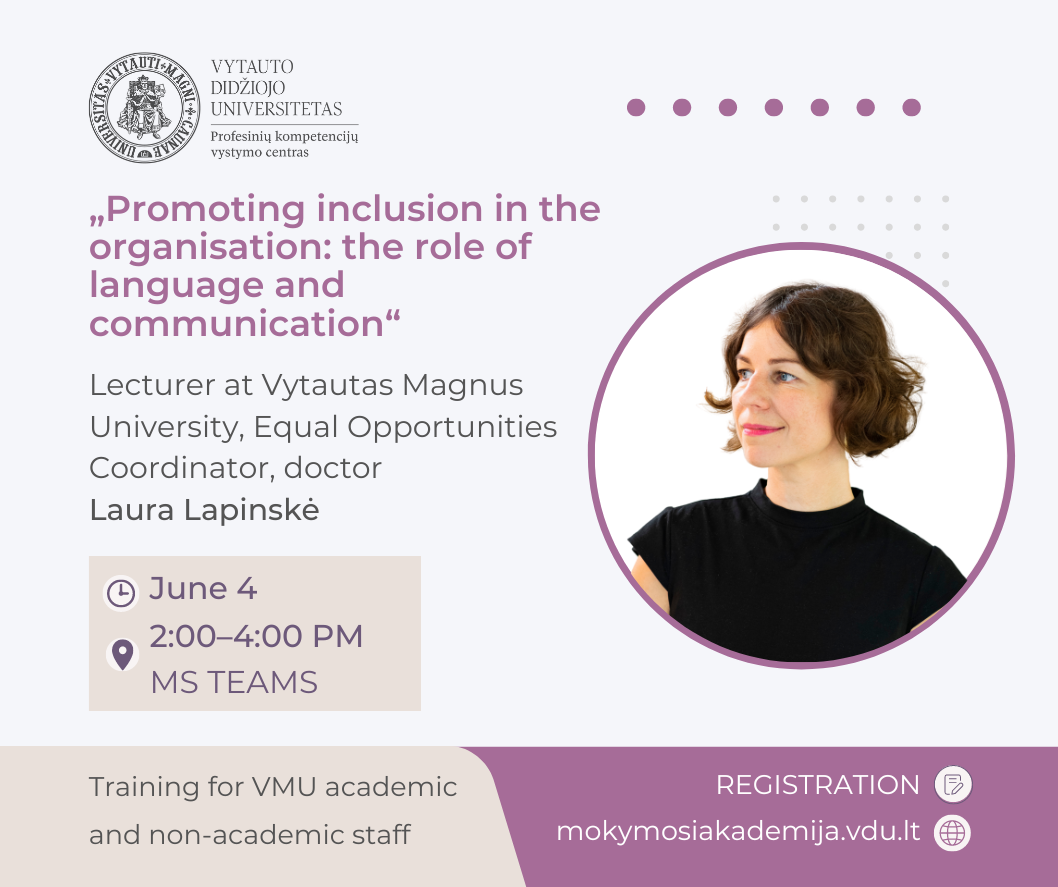 We invite VMU staff to participate in the online training “Promoting inclusion in the organisation: the role of language and communication”, which will be held on June 4, 2.00–4.00 PM.
We invite VMU staff to participate in the online training “Promoting inclusion in the organisation: the role of language and communication”, which will be held on June 4, 2.00–4.00 PM.
This training is conducted by VMU Lecturer, Equal Opportunities Coordinator, doctor Laura Lapinskė.
The training is designed to equip all VMU community members with the knowledge and skills needed to increase inclusion in the organization by changing and improving the culture of communication, language and a more inclusive representation. Participants will learn about the impact of language and communication on different audiences, tools and strategies to ensure effective communication and inclusive language, while avoiding prejudice, stereotyping and sometimes unintentional exclusion through language and communication.
Aim:
- To improve knowledge and understanding of the principles of inclusion: to explore the meaning of inclusive language and communication and their role in creating a diverse and welcoming work environment.
- To identify bias – the overlooked linguistic norms embedded in communication and representation.
- To increase sensitivity to language, communication and representation.
- To share knowledge, experiences, challenges and opportunities in applying the principles of inclusive language and communication in practice.
- To encourage self-reflection and sensitivity to language and communication through discussions, case studies and practical exercises.




